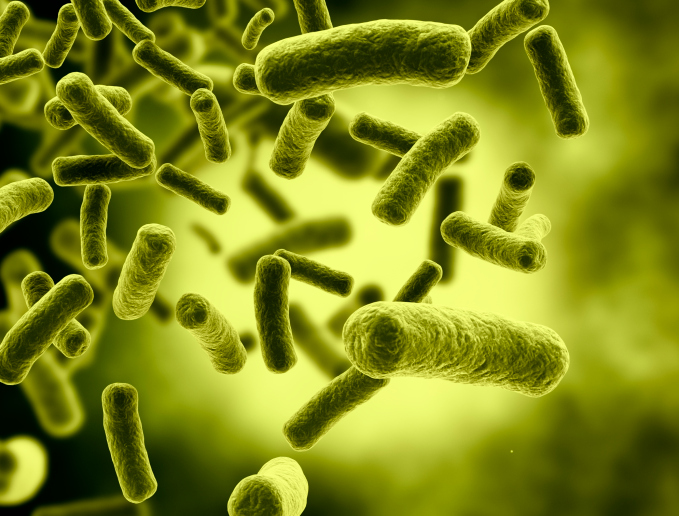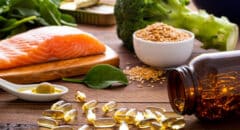 Say, “Hello,” to probiotics, the living strains of bacteria that may actually be good for you. With the typical American diet of processed foods and living in super-sterilized environments, Americans may be missing out on natural bacteria that are essential to healthy living. Although you already have plenty of “good bacteria” living inside of you, scientists are exploring the effects of supplementing diets with certain strains of probiotics to improve overall health. But, don’t go out and try any old probiotic, talk to your doctor or nutritionist first to find the right strain for your body’s needs.
Say, “Hello,” to probiotics, the living strains of bacteria that may actually be good for you. With the typical American diet of processed foods and living in super-sterilized environments, Americans may be missing out on natural bacteria that are essential to healthy living. Although you already have plenty of “good bacteria” living inside of you, scientists are exploring the effects of supplementing diets with certain strains of probiotics to improve overall health. But, don’t go out and try any old probiotic, talk to your doctor or nutritionist first to find the right strain for your body’s needs.
How do Probiotics Work?
The human body houses all types of living bacteria in the skin, mouth, reproductive organs and gastrointestinal tract. These bacteria are essential for the healthy metabolic function, digestion, and fighting diseases. Researchers have found that disruptions in the body’s environment of living bacteria can lead to chronic health conditions such as obesity, irritable bowel syndrome, type 1 diabetes, allergy, asthma and celiac disease. Probiotics come in many strains and forms, but are typically available as supplements and in fermented milk products like Kefir.
Scientists have discovered that certain allergies, infections, and diseases may be prevented with a regular dose of the right probiotics.
How Do You Take Probiotics?
Once you have your chosen supplement in hand, how to take probiotics? Morning or night? On an empty stomach or with food?
These are very common questions and the answer depends on the probiotic manufacturer, according to the staff at Biodynamic Wellness, which specializes in helping people recover their gut health.
Some probiotics are packaged in time release capsules and some are not. Finding out this information usually requires a phone call to the manufacturer, so when in doubt, assume that they are not time release.
Does this mean that it isn’t of any benefit to take a probiotic on an empty stomach?
No. It just means to play it safe to ensure the probiotics are protected from any reduction in potency due to stomach acid by taking them after a meal has been consumed.
Now, check out some real benefits to probiotics that work:
1. Allergies
A study published in the Journal of Nutrition found that expecting mothers can reduce allergies for their children by digesting probiotics during pregnancy. For those already suffering from allergies, probiotics can help improve the body’s response to certain food and seasonal allergies, according to a 2013 study.
2. High Blood Pressure
Researchers are paying close attention to probiotics’ potential to lower blood pressure, which affects over 40% of African Americans. In one study, hypertensive people who added certain probiotics to their diets for 21 weeks saw a moderate reduction in their blood pressure.
3. Chronic Digestive Disorders
Probiotics are best known for their ability to provide relief from diarrhea, ulcerative colitis, Crohn’s disease, and irritable bowel system. A number of clinical trials have found probiotics to prevent the frequency of these conditions and create more stability in the intestines.
4. Obesity and Diabetes
Scientists have found that probiotics may help regulate the metabolism and decrease body fat and body mass index in diabetic patients. A study has also found probiotics to help preserve the body’s insulin sensitivity and stave off diabetes.
5. Common Infectious Diseases
Probiotics may prevent the pesky symptoms from the common cold and flu. Multiple studies have found that people who regularly consumed some type of probiotics were less likely to experience cold, flu and upper respiratory tract infections.
6. Reducing Cancer Risk
In this developing area of research, there is evidence that probiotics may reduce and prevent the recurrence of tumors. Animal-based studies show that probiotics can prevent cell mutation, which typically leads to cancer.
7. Vaginal Health
Vaginal health depends largely on maintaining a fine balance of healthy bacteria. When this balance is thrown off by antibiotics, spermicides, and other chemicals, women can experience yeast infections and vaginosis, which can lead to pelvic inflammatory disease. Certain strains of milk probiotics have been found to prevent certain vaginal infections in women prone to infections.








